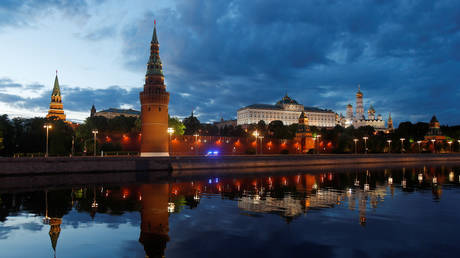
Even as the US government told Al Jazeera to register as a foreign agent, the Hill ran a misinformation-laden op-ed protesting proposed Russian rules that would do the same to US government propaganda. Exceptionalism or hypocrisy?
“US must demand equal access to Russian airwaves,” Jeffrey Gedmin and Gary Schmitt argued in their essay, published Tuesday. Russia, they say, is forcing Radio Free Europe/Radio Liberty (RFE/RL) to declare their status as foreign agents, to make sure “anyone would think twice about reposting news accounts and videos – or even visiting the site to begin with.”
It is true that Russia’s media regulator, Roskomnadzor, proposed a rule under which RFE/RL would have to label their content… in July. The US Agency for Global Media (USAGM), RFE/RL’s parent company, has already objected to it – as has US Secretary of State Mike Pompeo, back in August. It has not yet gone into effect, however, so why complain about it again now?
Ironically, on the very day Gedmin and Schmitt’s op-ed was published, news came of the Justice Department ordering Al Jazeera’s online outlet AJ+ to register under the US Foreign Agents Registration Act (FARA), supposedly as an agent of the Qatari government. No amount of protests or evidence of AJ+ editorial independence Al Jazeera reportedly offered seemed to satisfy the DOJ.
That sort of explodes Gedmin and Schmitt’s argument that RFE/RL should be treated differently because USAGM is “a non-governmental, non-profit” with a “firewall and journalistic independence from US government meddling.” Not least because, in actual reality, USAGM is run by a Senate-approved executive branch appointee, and is required to “be consistent with the broad foreign policy objectives of the United States” and “provide a surge capacity to support United States foreign policy objectives during crises abroad.”
The duo’s argument is also not served by the whopper that the US “does not require RT… to label its content as a product of a foreign agent.” This has literally not been true since late 2017, when RT was ordered to register under FARA and did so under duress. Almost no US mainstream media outlets objected, and very few international ones – that is, until it was their turn.
Seeing as Russia’s own foreign agents law is more or less a copy of FARA, it’s difficult to see how sauce for the goose shouldn’t be sauce for the gander. Unless the US is so ‘exceptional’ that it rises above its own laws and rules. Former heads of RFE/RL like Gedmin (2007-2011) and American Enterprise Institute scholars like Schmitt ought to know better.
Instead, they bring up the claim that the Kremlin is somehow seeking to limit what Russians read, watch or listen to. That is practically an article of faith in Washington. In reality, it’s a long-dead horse, whose corpse is being mercilessly abused in think tank think pieces like this. The Russian government literally sponsors a service called InoSMI to provide Russian translations of foreign media articles, for which there is no US equivalent.
Gedmin and Schmitt argue Russia’s President Vladimir Putin is personally cracking down on RFE/RL, but then say the outlet’s traffic has recently risen by “50-75 percent.” That’s a strange metric of repression.
Likewise, as evidence of supposed Russian disdain for Putin and “Russian life in general,” as well as anger over the alleged poisoning of opposition blogger Navalny – which happened in August – they cite a poll from May and a Washington Post opinion piece from April. So much for “accurate and reliable news reporting on what is happening inside” Russia, indeed.
Think your friends would be interested? Share this story!




